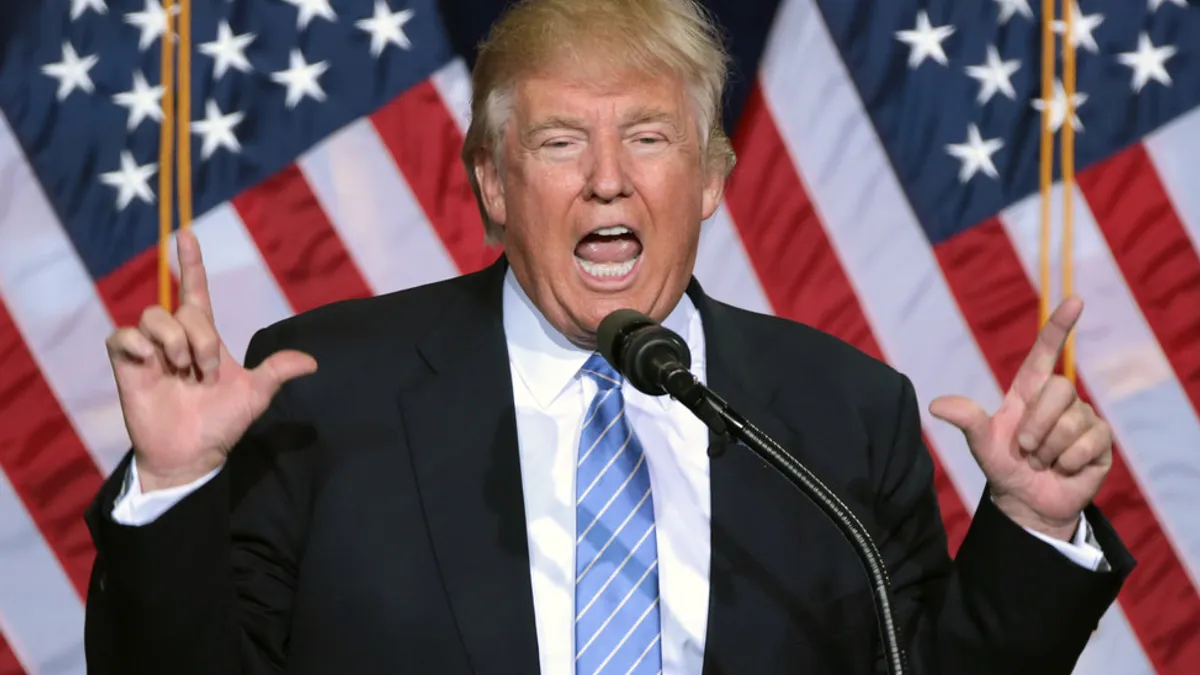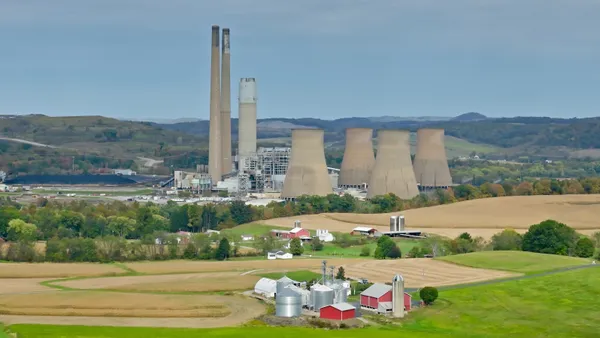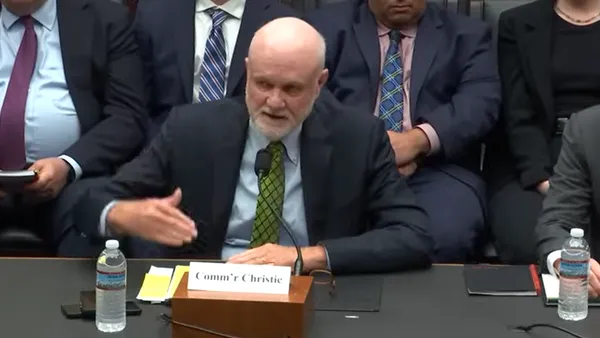Dive Brief:
- President Donald Trump has decided to withdraw the U.S. from the Paris climate accord, multiple news outlets report, citing unnamed sources with knowledge of the decision. Officials told the New York Times, however, that the decision is not yet final and language is still in flux.
- On Saturday, the president tweeted that he would make a final decision about U.S. involvement in the global climate agreement this week, reiterating that in another tweet Wednesday morning. The United Nations accord, signed by 195 nations in late 2015, aims to limit global average temperature change to 2°C this century, translating into a roughly 80% economywide decarbonization goal for the U.S. by 2050.
- The details of a withdrawal will reportedly be worked out by a small group of administration officials, including EPA Administrator Scott Pruitt. The officials will decide whether to initiate a lengthy process to exit the Paris accord, or opt for the quicker, more dramatic option of exiting the underlying United Nations climate treaty.
Dive Insight:
The White House has delayed a final decision on the Paris accord multiple times, but this week appears more likely for an announcement than before. On Saturday, Trump tweeted that he would end the power sector's months of waiting in the coming days.
I will make my final decision on the Paris Accord next week!
— Donald J. Trump (@realDonaldTrump) May 27, 2017
The tweet came as he attended a meeting with leaders of the G7 nations in Italy. The world's other developed countries hoped to influence the president to stay the course on global carbon cuts, but the meeting ended with the group announcing no agreement was made on the accord.
Then, on Saturday, Axios reported that Trump has told close confidants, including EPA head Pruitt, that he plans to exit the global accord. A White House spokesperson told the outlet the president has not yet made a decision, but will do so this week — a point the president reiterated in classic form:
I will be announcing my decision on the Paris Accord over the next few days. MAKE AMERICA GREAT AGAIN!
— Donald J. Trump (@realDonaldTrump) May 31, 2017
Administration officials are split on whether to stay in the deal, with Pruitt calling for withdrawal and Secretary of Energy Rick Perry pushing the U.S. to remain in the accord and "renegotiate" its terms.
Just how Trump would pull the U.S. out of the accord remains unclear, Axios notes. The accord includes a withdrawal process that would take until at least November 2020 to complete, and in that time, Trump could change his mind.
Alternatively, the president could declare the accord a legal treaty, which would need Senate approval, or pull the U.S. out of the United Nations Framework Convention on Climate Change, the underlying treaty for the Paris accord — a more radical and controversial move.
For the power sector, withdrawal from the Paris accord could signal reduced pressure to cut carbon over the next few decades.
Under the accord, the U.S. would have to cut economywide greenhouse gas emissions by about 80% by midcentury. Because the power sector is likely to play a key role in decarbonizing other sectors, GHG cuts for electricity generation would likely need to be even deeper, approaching zero net carbon by 2050.
The U.S. is already set to fall considerably short of those goals, according to a new report from the Rhodium Group. Without the Clean Power Plan, an Obama-era carbon rule Trump has promised to revamp or rescind, the U.S. would reduce its GHG emissions by 15% to 19% below 2005 levels by 2025 — well below the 28% cut targeted by the Paris accord by that time.
Even with the CPP, analysts say the U.S. was set to fall short of the Paris goals, as persistent investment in natural gas infrastructure would likely inhibit deep power sector decarbonization. For that reason, many sector observers see the Paris accord as a target for future presidential administrations to use for emissions regulations.
Fearing that, 22 GOP senators wrote to the White House last week urging an exit from the accord. They argued green groups could use the accord as the legal foundation for lawsuits challenging the rollback of environmental regulations.
That line of reasoning "reinforced" Trump's instincts to leave the accord, according to Axios, though the senators stressed the U.S. should not leave the underlying UNFCC treaty.
The EPA is currently reviewing the Clean Power Plan and other air pollution regulations, and a court case over the rule is on hold. Reports emerged last week that the agency has an early draft of the CPP rollback, but it remains unclear whether the administration will seek to replace the rule with a less-stringent carbon standard or throw it out entirely.
If the EPA chooses not to replace the CPP, it will likely face lawsuits arguing it has an obligation to regulate carbon under the Clean Air Act, the underlying statute. That route could set up a legal showdown over the scope of the law and the EPA's 2009 endangerment finding on greenhouse gases.
While some coal interests and generators are opposed to the Paris accord, most energy companies are pushing Trump to stay in the deal. Exxon, formally run by Secretary of State Rex Tillerson, reportedly reiterated its desire for the U.S. to keep on in a letter to the White House last week.
Environmentalists have largely decried the potential exit from the Paris accord, but there are those who think it would be better off without the world's largest economy. Writing in Nature, Australian environmental professor Luke Kemp argues that allowing the U.S. to stay in the accord while gutting domestic climate protections would weaken the pact.
This post has been updated to incorporate new reporting on Trump's decision and clarify findings from the Rhodium Group greenhouse gas report.













